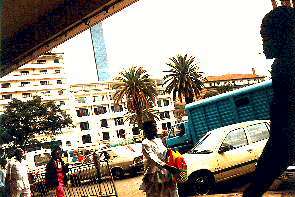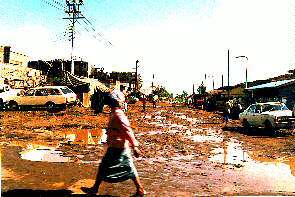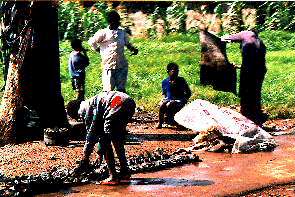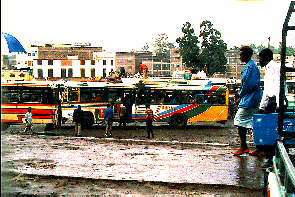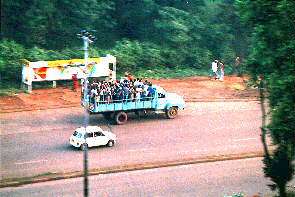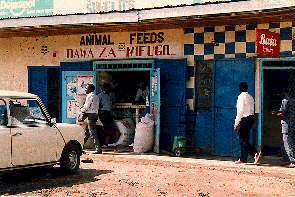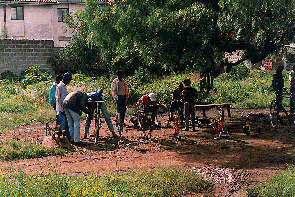| There are more than forty tribes in Kenya. All of them have their own Chiefs and their own ritual dances. Many of them even speak different Languages. That is why most Kenyans speak several Languages. They speak their own and usually two or three Languages of neighboring Tribes, as well as Kiswahili, which is the most important Language of all. Kiswahili is spoken by almost all people in East Africa. Those who had the good fortune to have gone to School, can also speak English of course. Learning Languages seems to be very easy for most Kenyans. How many Languages can you speak? |
|
|
|
One of the Kenyan Tribes are the Massai. They still live almost like they have done for thousands of years. The Massai are very proud Warriors and Herdsmen. They possess large numbers of cattle. The only food they eat is the fresh blood of their cattle, that they mix with milk. Most of the Massai still live in the traditional round hut, that, are built from twigs, animal skins and a mixture of clay and cow dung. It sometimes smells funny for us, but the huts are always cool inside during the day. |
| Those Kenyans living in towns are much the same as we are. The live
in Houses or Flats and the go to work in Offices, Hotels or Factories.
More and more people are leaving the rural areas to live in the cities, because they think that life in the city is easier. But as there is not enough work for everybody, many of them have to live in the slums, where the poor live. There they live in huts made from wooden crates or tin sheets. To these people, Toilets exist only in hearsay and large areas of the slums are frequently washed away during the Monsoon season. |
|
|
|
Running water is only a dream. If you need water to drink or wash, you
have to get it from the well, if it works, the River or following the
rains, from the puddles on the streets. Many of them suffer dangerous
diseases from drinking contaminated water.
When they have money they spend it on food. Traditionally they eat boiled Maize and Beans, that are cooked to make up a nourishing mash that is called Githeri. It contains all the body needs, but to our taste it is not very nice. |
| Most of the Children have to work from very early age either in the
fields or in the town. They try to get a job as a Newspaper seller, as
Porter or they beg in the streets. Others scavenge the towns' rubbish
tips for food or things of value.
Even those Kenyans working in Hotels, Offices or Factories do not earn a lot of money. |
|
|
|
In most Offices the employees earn little more than 60 Dollars a month and from this they have to pay tax and other deductions. Those working in Hotels are often better off. If they are lucky they get tips from the guests. Farm laborers, working for rich Farmers, are usually the poorest of all. The average pay is about 40 cents a day. Even in Kenya this is very little and often a family with four or five children must live on this. |
| There are a lot of good Schools in Kenya, but the Children must wear
a School Uniform and Fees must be paid. If you do not have a School
Uniform or the money for the Fee, you can not go to School. That is why
most of the Children never go to School. Even today very many people can
neither read nor write in Kenya.
Basically Kenya is a very rich Country. Whatever you sow will grow, so long as you have money to buy the seeds and have enough money to feed you and your family until the next Harvest. Unfortunately only very few people have that much money and therefore remain poor for the rest of their live. |
|
